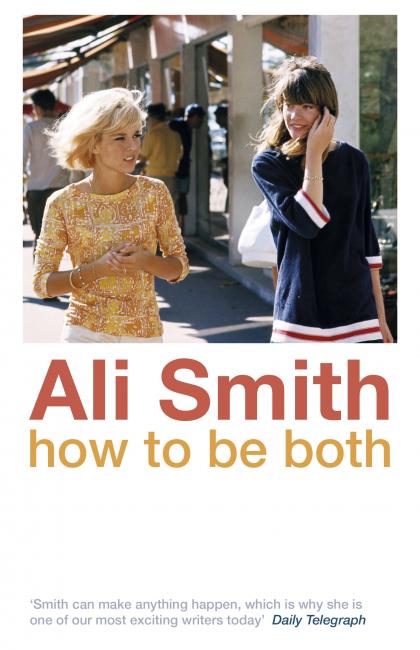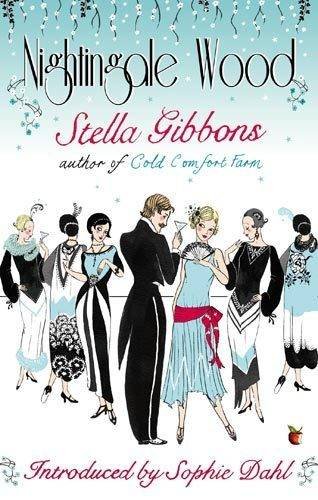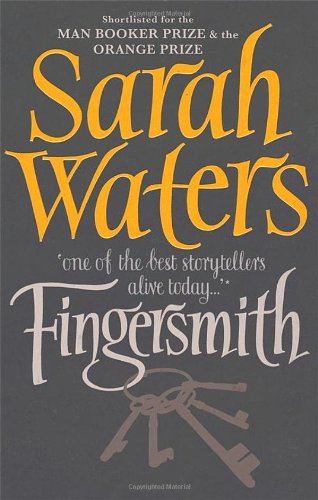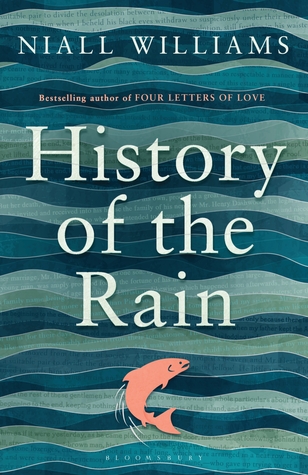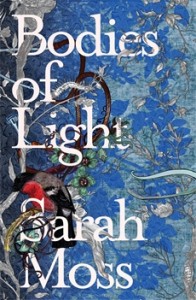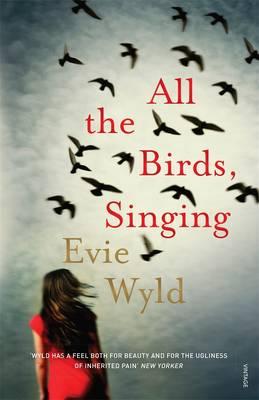Both: male and female; dead and alive; watched and watcher. This is a gentle, lyrical novel featuring two central characters, a Renaissance painter and a grief-stricken English teenager. They occupy their own narrative strands, which, though separate, are interconnected, and which can be read in an order chosen by the reader (I lack imagination, so I just started at the beginning).
Continue reading How to be Both
From the lady who brought us Cold Comfort Farm comes a slightly more serious, but no less sarcastic, novel. Gibbon has the happy ability, shared by so few (Dickens and Austen come to mind), of being able to deliver a Work of Literature in a way that feels more like sitting in a sunbeam eating fairy floss.
Continue reading Nightingale Wood
In 19th century England, a rogue enlists the help of a petty thief (the fingersmith of the title) to seduce a young woman of means. It’s hard to say much more without spoilers, because the plot twists itself into something completely new several times before getting to its conclusion. Story is definitely king here (or rather, I suppose, queen). Not that the prose isn’t pretty good: tight but lyrical, with descriptive passages that avoid slowing down the momentum. But the writing is there as a vehicle for the plot, not the other way around. The result is a suspenseful and engaging page-turner which I personally enjoyed immensely. Probably the greatest compliment I can pay it is that when I read it at the gym, I was taken completely by surprise at the machine timing out.
In rainy County Clare, a teenage girl with a life-threatening illness lies in her attic bedroom, surrounded by nearly four thousand books, and tells the story of her family.
Continue reading History of the Rain
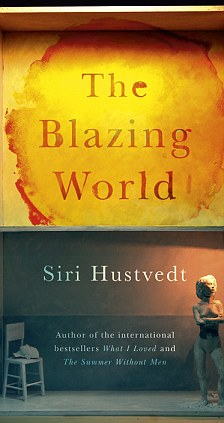
I feel like Hustvedt is a really great way to make everything else one has read recently seem childish and ill-informed. The basic plot of this novel, told after the death of the main character through testimonies and historical documents, involves a female artist showing three major installations using the names of three male artists. You’d expect a bit of gender theory in the mix to prove the author had done her homework, but Hustvedt joins the dots from Milton and Emily Dickinson through Mill, Kierkegaard and Nietzsche, encountering Husserl and the Freuds and not omitting Aunty Madge, the Duchess of Newcastle…plus plenty of others I’d never heard of. None of it seems like showing off because it’s a reflection of the heroine’s energy and zeal for information, though the footnotes did start to wear me down. My only other complaint is a brief moment of metafiction which felt like the author indulging herself (and after all, it IS her book). Otherwise an intriguing and meaty read, which manages to be cerebral while sending out a primal howl of anger and frustration.
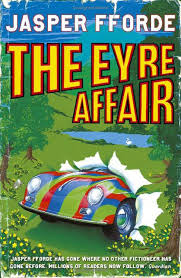
In an alternative 1985, dodos and neanderthals are no longer extinct, the Crimean war is entering its 131st year, and French Revisionists are suspected of tinkering with the Battle of Waterloo. More importantly, the barriers between fiction and reality are not as solid as one might think, and crimes against literature are considered sufficiently serious to warrant a dedicated Literary Detective force. This is the first and best in a series that is pure joy for the repressed Arts grad in all of us, as it tinkers with the rules of logic, history, matter, and reality (and along the way manages to answer the question of who REALLY wrote Shakespeare’s plays). Literary (and artistic and historical) winks and jokes abound; I’ve read it at least ten times and I’m pretty sure I’m still not getting some, having never read “Martin Chuzzlewit” – still, I really believe that even those with minimal experience of the English canon will enjoy these books. Having said that, an acquaintance with the basic plot of Jane Eyre will help.
Moss’s glorious female characters are fully formed and morally complex; in this novel, set in 19th century Manchester, they are both products of, and alienated from, their time and place. She seems fascinated by the consequences of parental influence, and is, unlike some novelists, capable of being passionate (or angry) about more than one thing at a time. Now someone just needs to convince her that male characters are worth writing with the same amount of depth (though heaven knows they’ve had enough time devoted to them by her colleagues already). A companion piece to the also-marvellous “Night Waking”.
I almost gave up a third of the way in, just because this book is so unrelentingly grim. I’m glad I stuck with it, and could appreciate how its bleakness was a necessary counterpoint to the gradual thawing of the protagonist. Not for the faint-hearted – there’s a reason the narrator’s so traumatized and paranoid – but will reward perseverance.
